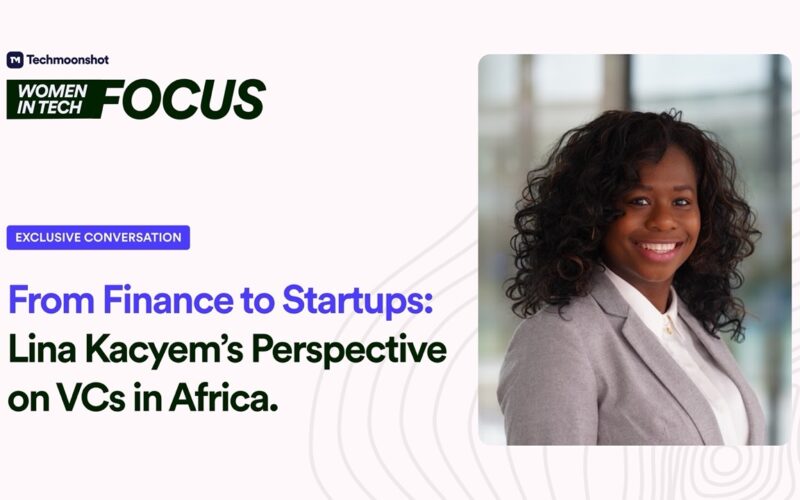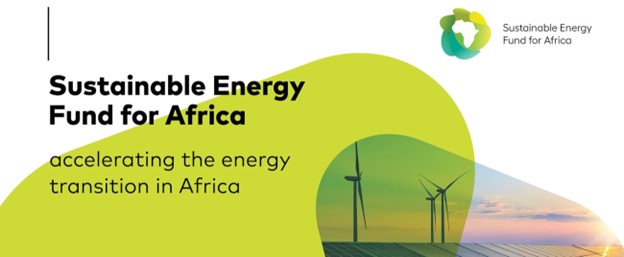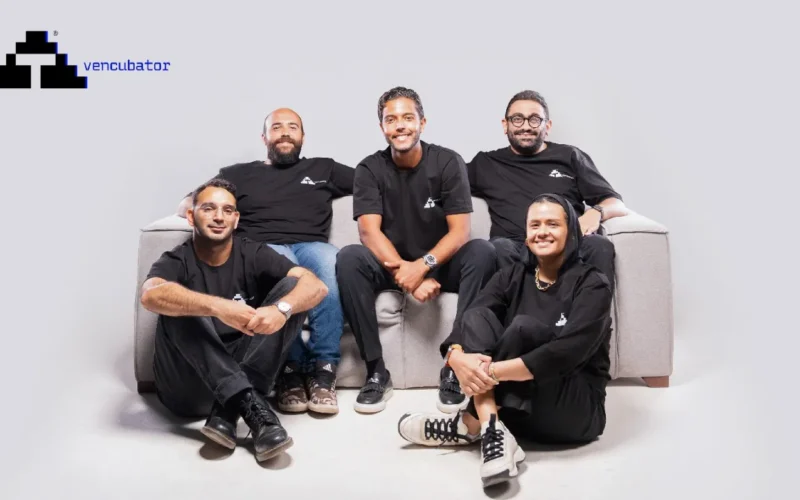Lina Kacyem is a Cameroonian-American professional with over 15 years of experience in the financial and consulting sectors. Her career spans various domains including insurance, international finance, development, early-stage startups, investment, and consulting with a focus on tech, healthcare, and pharmaceuticals. Lina’s rich professional journey reflects her versatility and expertise across diverse industries. She is currently an investment manager at Launch Africa.
On a personal note, Lina identifies with the unique perspective of being a first-born African daughter, often driven by a sense of duty and responsibility. She enjoys indulging in life’s simple pleasures, such as eating, sleeping, reading, and traveling. Lina also values the occasional moments spent with family and friends, cherishing the balance between her professional commitments and personal interests.
In this exclusive conversation, Lina Kacyem delves into the intricate and symbiotic relationship between startup founders and Venture Capitalists. Drawing from her extensive experience in the financial and consulting sectors, she provides a nuanced perspective on how these two entities can work together to create mutual success.
Can we get to know you?
Professionally, I’m a Cameroonian American with over 15 years of experience in the financial and consulting sectors. In finance, I’ve worked across insurance, international finance, development, early-stage startups, and investment. On the consulting side, I’ve focused on tech, healthcare, and pharmaceuticals. On a personal note, as the first-born African daughter, I’ve often been driven by a sense of duty and responsibility. In my free time, I enjoy simple pleasures like eating, sleeping, reading, traveling, and occasionally spending time with family and friends.
What inspired you to join Launch Africa and work with startups?
My desire to work with startups predates my interest in joining Launch Africa Ventures, mainly because I became aware of startups earlier. Nearly a decade ago, I began seeking ways to make a meaningful impact on the continent, particularly in Cameroon, where I’m originally from. In a capitalistic world, you can create impact through either the private or public sector. I leaned towards the private sector and asked myself, ‘Who is really building the private sector?’ In the U.S., small and medium enterprises often start as innovative startups that address societal challenges. I saw startups as a vehicle for improving the standard of living in Africa by expanding the middle class.
A few years later, I learned about Launch Africa Ventures. While they had a strong and positive reputation in the ecosystem, what truly sold me was the interview process. I encountered an eclectic team with a genuine desire to get to know me and understand how I work. They respected my passion for focusing on Francophone Africa and driving more capital into startups in that region. Now that I’m part of the team, I can see firsthand how much they care about the founders and support one another.
Did you have any role models or mentors who influenced your career path?
Short answer: yes. I’ve been fortunate that my first professional mentors were actually my parents. They have had impressive careers, especially considering their starting points, and have always focused on living life true to their personal objectives rather than making popular choices. This focus on their own goals, rather than keeping up with others, is a crucial mindset in building a career. It’s about knowing what you want, identifying your skills, recognizing what you need to develop, and staying on your own path.
Beyond my parents, I’ve been lucky to have a few mentors from different places of employment, though I’ll keep their names anonymous to avoid leaving anyone out. The key lesson here is that we all need mentors who will support, challenge, and push us to think about our personal development. The best mentors don’t impose their own fears or limitations on you; instead, they see you as bigger than you see yourself, helping you regain the confidence to envision and achieve even more than you initially imagined.
What sets Launch Africa apart from other investors in Africa today?
Three key aspects distinguish Launch Africa Ventures (LAV). First, we prioritize building strong, collaborative relationships with founders, ensuring they receive tailored guidance and support. This approach has earned us a solid reputation and a pipeline of hundreds of startups. Second, our true Pan-African focus is evident in our investments across over 20 countries, including Francophone Africa, long before it became popular.
This intentionality reflects our belief that great opportunities can emerge from any corner of the continent. Lastly, our pioneering spirit drives us to take early risks, actively building and nurturing the ecosystem. We ensure that our portfolio companies not only thrive individually but also support each other, creating a network where they can gain market share and strengthen their positions across diverse markets.
What are some of the biggest challenges facing African startups today, and how can they overcome them?
African startups face several unique challenges, including limited access to capital, inadequate support infrastructure, and difficulties in attracting skilled talent. Capital scarcity is a significant issue, with Africa receiving less than 5% of global VC investment, which hinders both initial funding and growth. Additionally, the lack of quality incubators, accelerators, and supportive government policies further impedes startup development. Human capital is another challenge, as startups struggle to compete with larger companies offering better pay and benefits.
To navigate these obstacles, founders should focus on being creatively resourceful and pitch their ideas frequently to refine them. Ensuring their ventures are fully prepared for investment, with a solid pitch, organized governance, and realistic valuation, is crucial. Personally, I contribute by offering actionable feedback to help founders improve their pitches and investor readiness.
What sectors or industries do you see as the most promising for investment in Africa right now?
Oh, I wish I had a crystal ball, Mustapha! Unfortunately, mine is shrouded in fog. While I can’t predict the future with certainty, I can speculate based on my experiences and observations.
First, I believe FinTech will continue to thrive. Although the focus may shift from traditional areas like remittance and money transfer, FinTech will remain crucial, particularly with increasing efforts to address working capital challenges for SMEs.
Healthcare is another sector poised for growth. With a rising population and longer life expectancies, there will be a growing demand for healthcare solutions to address critical issues that become part of daily life.
Climate change is also a major concern. Africa is highly affected, so we’ll see more innovation in areas like electric vehicles—especially two- and three-wheelers—charging infrastructure, and sustainable agricultural practices to mitigate the impact of climate change.
Lastly, logistics will be essential for economic development. Beyond infrastructure like roads and bridges, there is a significant need for tech-driven solutions to improve the movement of goods and people.
Additionally, we can’t ignore the influence of global financial institutions (GFIs), which often drive investment trends. Thus, the sectors receiving attention from GFIs will likely see more funding.
While these are educated guesses, the future remains as unpredictable as ever!
So what does your role as an investment manager entail on a day-to-day basis?
Okay, my day primarily revolves around calls, emails, and more calls. That’s really the core of it. I also make time for on-site visits to meet with founders in person and attend conferences when possible. But the bulk of my work involves engaging in conversations with founders, investors, and various partners.
If you’re not a fan of talking, this job might not be for you. Active listening, being solution-oriented, and staying efficient are crucial in my role. It’s essential to listen carefully to founders and other stakeholders to understand their needs and provide thoughtful advice or solutions. Additionally, being quick on your feet is important, as time is one of the most valuable resources in this field.
What are some of the most rewarding aspects of being an investment manager?
Oh, you’re making me reflect a bit. The best part of my job, especially after a challenging day, is when I see a founder taking notes and smiling after I offer a suggestion. When they tell me that my advice is practical and actionable, and I can see their enthusiasm to discuss it with their team, it’s incredibly rewarding.
But beyond that, the real highlight of my job is working with founders. I often joke with my friends that founders and politicians are similar in one key way: both declare that they’ve identified a problem and are committed to solving it. The difference is that entrepreneurs show you their progress daily, whereas politicians might not demonstrate their solutions as visibly. This isn’t a criticism of politicians—please, no trouble!—but rather an acknowledgment that entrepreneurs tend to be more hands-on with their solutions. It’s a fascinating and fulfilling aspect of my role.
What are some of the key qualities and skills you look for in a startup you fund in Africa?
It’s going to be a somewhat lengthy list, but the good news is that most investors consider the same key factors. Some may weigh them differently, but generally, the list is quite similar.
Problem and Market: What problem are you solving, and is there a market willing to pay for it? This is essential—this isn’t charity.
Solution: Why is your solution the best? It must be compelling enough to persuade customers to change their behavior.
Traction: Demonstrate market engagement and how your solution is valued and adopted.
Growth Plans: Share your vision for expansion and growth. What are your projections and strategies?
Financials and Governance: Are your financial statements and cap table up to date? How are you managing expenses and revenue? Governance structures are also crucial.
Team: Why are you and your team the right fit? Align your credentials and experience with your venture’s needs. Ensure you’re ready for the funding and understand its implications.
In summary, the key elements are: the value of the problem, the solution, market traction, financials and governance, growth plans, and the team.
Tea or coffee, which gets you up in the morning?
It depends on the day. I usually enjoy black coffee, but if I’m craving something different, I’ll opt for a cappuccino, mint tea, or ginger tea without sugar. I like both.
What are some of the most exciting trends and innovations you’re seeing in the tech startup world right now and you most likely want to hedge a fund on it?
I’m very excited about the climate tech sector, especially where it intersects with mobility. I’m particularly interested in electric vehicles, including two- and three-wheelers, bikes, cars, and charging stations. Recently, we invested in SolarBox, and I’ve been engaging with several founders in this space. Another trend I find promising is in logistics. I see more startups addressing challenges in transporting goods, such as from China to Uganda or India to DRC, using tech to compete with traditional players who haven’t adapted to drive down prices or improve transparency and efficiency. Lastly, I’m passionate about healthcare and education. It’s inspiring to see innovative solutions, especially those leveraging AI, to tackle the challenges in these fields.
What do you think is the core difference between a failed and successful startup?
I’d highlight three key factors. First, the leadership team is crucial. They determine what a startup can achieve with limited resources, as capital alone isn’t a complete resource. The leadership sets the tone for discipline, employee engagement, fairness, and relationships with customers, partners, and the broader ecosystem.
Second, capital is a significant factor, especially in challenging climates. Raising funds can be tough, so startups must be highly creative and disciplined with their spending. This often means cutting expenses to navigate tough periods and positioning themselves to raise capital again when conditions improve.
Lastly, the environment plays a critical role. Some founders might launch too early or misjudge their market environment. For example, Jumia, a major player, faced challenges and is still working to become profitable, which underscores the importance of understanding and adapting to market conditions. Even prominent figures like Aliko Dangote face challenges, illustrating how the environment can impact a startup’s success.
What do you enjoy doing in your free time outside of work?
Let me describe my favorite day, which is Saturday. It starts with a gentle exercise class, like Pilates, since it’s the weekend and I don’t need to push myself too hard. After that, I enjoy a refreshing cold shower—especially welcome here in Abidjan with its hot and humid weather. I then call some family members to check in and see how everyone is doing.
Mustapha, I savor my meals like it’s the last meal of my life—eating a lot and in big quantities. Afterward, I might take a nap, wake up to read a bit, watch some TV, and then go back to sleep. If a friend calls later in the day and asks if I want to go out, my usual response is no, especially if I’ve spent the week talking to many people. So, in a nutshell, my free time revolves around food, some light exercise, reading, sleeping, TV, and catching up with loved ones.
If you could give one piece of advice to your younger self what would that be?
Oh, it’s very simple. I’ve said this to myself and written it down a few times: “Girl, stop overthinking and stop being afraid. Just go for it. You’re smart enough, capable enough, and good with people. Even if you fail, there’s always another day. You have an amazing support system, so leave behind the ego that wants a straight path to success. Just do it.” I’ve told myself this a million times, which is why I can repeat it so confidently.
Finally, what resources (books, podcasts, networks, etc.) have had a significant impact on your career growth?
I have a long list of favorite books, but here are ten that stand out:
- The Last Lecture by Randy Pausch
- Love Yourself Like Your Life Depends on It by Kamal Ravikant
- You Learn by Living by Eleanor Roosevelt
- Memo to the president-elect by the late Madame Madeleine Albright
- The Seat of the Soul by Gary Zukav
- Ta Deuxième Vie Commence Quand Tu Comprends Que Tu N’en As Qu’une by Raphaëlle Giordano
- The Four Agreements by Don Miguel Ruiz
- Les Impatientes by Djaili Amadou Amal
- Sous la Cendre le Feu by Mpoudi Ngolle
- The Surrender Experiment by Michael A. Singer
Bonus:
- The Body Keeps the Score by Bessel van der Kolk
- Year of Yes by Shonda Rhimes
I’ve been an avid reader since childhood and could easily recommend more books. Additionally, I’d like to mention my boss’s podcast The Grinder’s Table by Uwem Uwempakan. Not only is it a great listen, but I was hooked on it even before I joined the team. It’s similar to “How I Built This” with Guy Raz in that it delves into the thought processes of various stakeholders. I would also love to add the podcast “The Trajectory” by Tayo Akinyemi. Another podcast I enjoy is “Limitless” by Claude Gruniztky, which features concise interviews and sharp insights.
These books and podcasts have deeply influenced my career and personal growth. Understanding geopolitics through the lens of figures like Madeleine Albright, taking care of oneself as discussed in books like Ta Deuxième Vie and The Body Keeps the Score, and gaining perspective on the lives of others through works like Les Impatientes and Sous la Cendre le Feu have all been crucial for me.
It’s a pleasure talking to you.
Thank you, Mustapha. I really enjoyed our conversation too.












